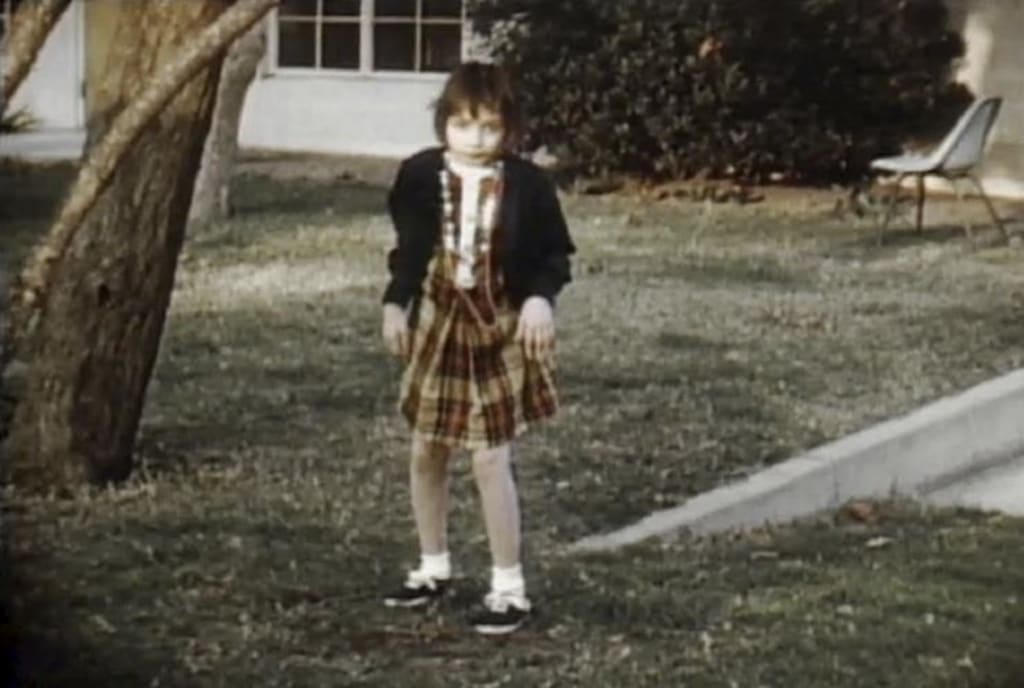Genie: Valuable Lessons from Tragic Circumstances
What Can Be Learned From the "Wild Child" of the 70's

Most everyone in the psychology world knows the name Genie and is at least somewhat familiar with the unique case behind it. Genie’s story is one of tragedy, triumph, and immense growth, but the execution of the research surrounding it was nowhere close to perfect, and it’s important to question this execution in case the opportunity to repeat this study were to arise. What could the researchers have done differently, and where did their priorities lie? Additionally, it’s worthwhile to consider questions both answered and raised by Genie’s case, such as what does this case teach people about language learning, and how does it support Chomsky’s theory of language acquisition and the behaviorist view of language learning?
Chomsky’s view of language acquisition suggests that “we have internal rules that enable us to decide which sentences are grammatical and convey our intended meanings,” and that children master most of the rules “of grammar by the age of 6 or so, and the rest by puberty” (Crain, 2016). It also suggests that this mastery is “guided by an innate knowledge of Universal Grammar,” and that children “automatically know the general form any language must take” (Crain, 2016). This could help explain how children from various cultures that speak different languages can all learn language, generally around the same time. Genie’s case supports this because, although she wasn’t able to master grammar, she was still able to learn some language despite being isolated for the majority of her life, suggesting that there must be some internal mechanism that enabled this. Chomsky’s theory also suggests the existence of a sensitive period for rapid language acquisition that ends around or before the onset of puberty. Genie’s case supports this too because, while she is able to learn language, she doesn’t learn it rapidly the way a child would, possibly because, at 13 years old, her sensitive period had already ended.
The behaviorist, or Skinnerian, view of language learning, also called the “babble-luck” theory, suggests that babies will babble “until, by luck, they hit on a sound that resembles a word, and it is reinforced” (Crain, 2016). Building on this idea, Bandura believed that language learning was also influenced by modeling, where children would observe a parent use certain words and grammar rules and eventually learn to use them themselves. Genie’s story supports some aspects of this theory, as part of what she learned she did through watching and listening to others and repeating what she saw. These behaviors were then reinforced by her caretakers, which encouraged her to continue learning in this manner.
Realistically, it is almost certainly not possible with current technology to fully test the accuracy of Chomsky’s notions of language acquisition or the behaviorist account. Testing both Chomsky’s theory and the behaviorist theory would involve creating a scenario similar to Genie’s where the participant is isolated and deprived of language and contact with others, and, ethically, this is not feasible, and it would be especially unethical for it to be done for the sake of an experiment. While Genie’s case did provide a plethora of valuable insight into language acquisition and the sensitive period of language development, her scenario was, thankfully, an anomaly. However, if ethics were not a concern, it could be possible to test these theories if the researchers could guarantee that no harm, physical or psychological, would come to the participants. Genie’s maltreatment resulted in her being severely handicapped, physically and psychologically, and her difficulties were likely a result of her confinement. Because Genie’s mental age seemed to advance a year for every year she had been out of isolation, her caretakers and researchers believed “that she was not mentally retarded” because it would be extremely unlikely to “see a case of a mentally retarded child in which the mental age increases a year with every year” (Rymer, 1998). This goes to show how damaging an experiment of this nature could be to any participants, which is why it would be crucial to guarantee that the test would be completely ethical. Assuming that it could be, it would be extremely interesting to do more research into the sensitive period for language learning as well as how isolation can impact development because evidence of this nature could provide a great deal of empirical support for Chomsky’s theory. Again, though, it would be crucial to ensure that the participant’s treatment wellbeing would be prioritized.
Based on the stories expressed in Genie, a scientific tragedy, it is easy to believe that the focus was mostly on research rather than treating Genie, as several of the stories told in the novel indicate that research was the priority. One person who seemed to put a greater emphasis on research was Susan Curtiss. For example, when James Kent reported that Genie was starting to speak during their outings with himself and a nurse, “Curtiss started coming along to hear what Genie said,” which resulted in Genie becoming more attached to Susan “than to the nurse who was supposed to be her surrogate mom” (Rymer, 1998). Here, Curtiss clearly prioritized observing and researching Genie more than she prioritized her care. Yet another example, when Genie moved in with Jean Butler, who took her in to give her a foster family and some sense of normalcy, Curtiss once again began to insert herself into the lives of Genie and her caretakers for the sake of research. Butler noted that “Genie did not talk around Miss Curtiss,” implying that her presence was actually inhibiting Genie’s development (Rymer, 1998). It eventually got to a point where Butler “asked Dr. Kent to have Miss Curtiss removed from [her] home” (Rymer, 1998). That being said, Susan Curtiss was not the only one to prioritize research over treatment. On the surface, David Rigler seemed to genuinely care about Genie’s wellbeing, and he probably did to a certain extent. However, when it came time for the NIMH grants committee to review Genie’s case study and its funding, Rigler’s true intentions shined through, as he and his wife “indicated that without support for their research project, they would probably have to terminate their foster relationship with Genie and leave her future care to the state of California” (Rymer, 1998). These actions suggest that, all along, his real priority was his research project. His decision to terminate the foster relationship with Genie resulted in her being passed around through multiple foster care arrangements, which left her feeling “confused and traumatized” (Rymer, 1998). Taking care of a special needs child like Genie is of course very challenging, but if Rigler had truly cared about Genie’s wellbeing, he would have done more to ensure that she would be taken care of and placed in a foster environment conducive to growth.
Overall, Genie’s researchers did the best they could with the resources they had, but, truthfully, a lot more could have been done to ensure that Genie was cared for and well taken care of, and more could have been done to ensure that any research conducted on Genie was well organized and performed ethically. Towards the end of his novel, Rymer describes a lawsuit between Genie’s mother Irene and Susan Curtiss, where Irene was unhappy with the portrayal of her and Genie’s lives prior to escaping her abusive husband. Irene’s lawyer, Sam Paz, claimed that Genie “was on a testing regimen … of sixty or seventy hours a week,” to which Curtiss said that her “test periods were never more than forty-five minutes on a given day” (Rymer, 1998). Regardless of the accuracy of either claim, it’s clear that the research was not organized and planned in a way to prevent this kind of confusion from occurring. The researchers should have been more proactive about logging and recording the duration and nature of any tests conducted on or with Genie, and it probably would have been smart to do the same for any extra time that the researchers spent with Genie. Additionally, some may believe that it was in poor taste for Susan Curtiss to publish so many private details about Genie and Irene’s lives. Wanting to write her dissertation on the case is understandable and acceptable, but it seems unethical to write about details that she did not have consent from Irene or Genie to publish. A more controversial opinion related to the case is that Irene should probably not have been allowed to remain the sole guardian of Genie. A mother should be focused on her child and want to do what’s best for them, and Irene did not. Instead, she began to focus all of her care inwards and only worry about what she wanted. For example, choosing to cut off Genie’s contact with the scientists, who were also her closest friends, was arguably not in Genie’s best interest. Clearly, Genie thrived during her time working with them, so one can safely assume that she likely did not adjust well to such sudden separation. However, it would be impossible to know for sure, as Irene refused to let anyone study Genie in any way, shape, or form. Based on this selfish, controlling behavior, it’s easy to argue that Irene should not have been Genie’s sole guardian and caretaker, as she clearly did not have her best interest at heart, and, had she not been selected as the sole guardian, the conclusion of this case likely would have turned out much differently. All in all, the focus should have been on Genie. It should have been on her wellbeing and on treating her so that she could develop and grow as much as possible. Unfortunately, though, as Jay Shurley said, in this case, “everybody got to be everybody’s antagonist,” and “that’s not what happens in a well-run scientific enterprise” (Rymer, 1998). In Genie’s case, some of the scientists became self-centered and lost sight of what was most important, and, if an experiment of this sort was ever to be conducted again, it would be crucial to ensure that every researcher and participant would remain focused on the goal so that the study would remain as ethical as possible.
In terms of research methodology, it does not seem that the research conducted around Genie’s case was very well thought out or put together. Admittedly, it’s impossible to learn every minute detail of the case from only one novel, but the methods of conducting research were not well defined or described. In any study, it’s extremely important to clearly lay out the procedure for any tests as well as set clear, well defined goals for the research, and it did not seem like that was done to the extent it should have been for Genie’s case. Again, the researchers likely did the best that they could with the resources that they had, but if another study like this was ever to be conducted in the future, researchers should see to it that goals are defined and procedures are clearly laid out.
Genie’s story is evidence that a sensitive period for language acquisition does exist, and that it ends sometime around puberty. While it apparently is possible, based on Genie’s story, to learn some language after this period ends, the grammar and vocabulary will never reach the level it could have, had the language learning begun during the sensitive period. Based on these findings, it would most likely be ideal to start teaching children a second language in elementary school. In the United States, most public schools don’t start to teach students a second language until high school, which seems much too late if the goal is to have students really learn the language and excel at it. Additionally, there is not much evidence that a lot of students actually achieve fluency in high school, and starting so late can make it much more difficult for students to learn the language. Teaching foreign languages in schools is a great idea in theory, but would be executed much more effectively if students started learning at a younger age.
All in all, a lot can be learned from Genie’s story about development and language acquisition. For example, her case provides evidence to support Chomsky’s theory of a sensitive period for language acquisition, and also supports the idea that humans possess a universal grammar that guides language development. However, despite the immense amount of evidence to be gleaned from Genie’s case, it did have several flaws that would have to be remedied if the case study was ever to be replicated, most concerning the ethics and organization of the study. Overall, Genie’s story is a tragic one, but a lot of good came out of it, both for Genie herself and for the psychology community.
References
Crain, W. C. (2016). Theories of development: Concepts and applications. Routledge, Taylor & Francis Group.
Rymer, R. (1998). Genie a scientific tragedy. HarperPerennial.
About the Creator
Celia Pyburn
Welcome, friends! I write everything from fiction to opinion pieces to political essays, so there's almost certainly something here for you. Feel free to stay as long as you like!






Comments
There are no comments for this story
Be the first to respond and start the conversation.